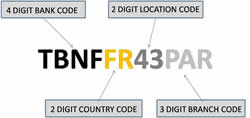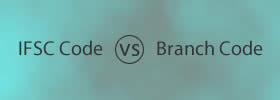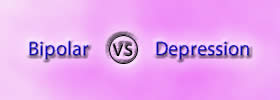Difference between SWIFT Code and RTGS
Key Difference: SWIFT code is a code that is assigned to any institution that acts as the institution’s identity in the foreign market. 'RTGS' stands for Real Time Gross Settlement. It is an online system through which the funds can be transferred from one institution to the other in real time and on ‘gross’ basis.
 The acronyms SWIFT and RTGS are quite common in the banking industry, but for people that do not understand the complex web of networks that banks use to transfer money. In today’s day and age, transferring money has becoming simply about numbers, where monetary value from one account is deducted and added to the monetary value of another account. While, RTGS (Real-Time Gross Settlement) is a method of transferring money in the same country, SWIFT code is required when transferring funds to another country.
The acronyms SWIFT and RTGS are quite common in the banking industry, but for people that do not understand the complex web of networks that banks use to transfer money. In today’s day and age, transferring money has becoming simply about numbers, where monetary value from one account is deducted and added to the monetary value of another account. While, RTGS (Real-Time Gross Settlement) is a method of transferring money in the same country, SWIFT code is required when transferring funds to another country.
SWIFT code is a short for an even longer acronym known as SWIFT/BIC - Society for Worldwide Interbank Financial Telecommunication/ Bank Identifier Code. This code was established in 1973 in Brussels as an identifier code. This code is assigned to both financial and non-financial institutions. When assigned to a business, it may also be known as a BEI or Business Entity Identifier. The purpose of this code is to allow easy transference of money between banks, specifically from one country to another. In addition to money, the banks also communicate with each other using this code and it can sometimes be found on bank statements.
SWIFT can also supply software and other services to banks and other financial institutions. The SWIFT code acts as the identity of the bank when it sends or receives a transaction. The code lets the other institutions know three main things the name of the bank, where the head office is located. For example the SWIFT code for the primary office of Deutsche Bank would be DEUTDEFF. The code is made up of:
DEUT – for Deutsche Bank
DE – for Germany, the country where the headquarters are located
FF – for Frankfurt, the city where the headquarters are located
The code is usually made up of 8-11 characters and is commonly made up such as the example given above: the name of the company and the city and country of the headquarters. This SWIFT code easily helps the institutions recognize each other. A person that is sending or receiving money from one country to another is commonly asked for the SWIFT code of the bank from which it is sending/receiving the money.
 'RTGS' stands for Real Time Gross Settlement. As the name indicates, a settlement in RTGS is done on a real time. It is an online system through which the funds can be transferred from one institution to the other. Banks are important institutions that use this kind of settlement. This electronic payment system is normally controlled by the central bank of a country. This involves no physical exchange of money but the values in the electronic accounts are changed.
'RTGS' stands for Real Time Gross Settlement. As the name indicates, a settlement in RTGS is done on a real time. It is an online system through which the funds can be transferred from one institution to the other. Banks are important institutions that use this kind of settlement. This electronic payment system is normally controlled by the central bank of a country. This involves no physical exchange of money but the values in the electronic accounts are changed.
All transactions sent through RTGS are queued and submitted on the basis of ‘First in first out’. RTGS enabled banks can also prioritize the transactions according to the requirement. Transactions are settled on one to one basis without clubbing with other transaction. Transactions between banks are settled on a continuous gross basis (on a transaction by transaction basis) with the Central Bank.
In RTGS, the transactions are processed continuously. Therefore, the transfers are quick and very useful during emergencies. It is a real time processing system thus, there is no waiting time attached with this system. Once the transaction is settled, it is irreversible. RTGS also helps in giving a clear picture of the accounts at any instance. The World Bank also offers help to countries who want to implement the system. RTGS systems are generally secure as they are designed by keeping the international standards in mind. Goals of RTGS:
1. To reduce settlement risk due to settlement lag
2. To reduce credit risk
3. Speed up the process of high value payments
4. To give accurate position of the participating bank
Image Courtesy: kanyakabank.in, support.commbank.com.au









Add new comment